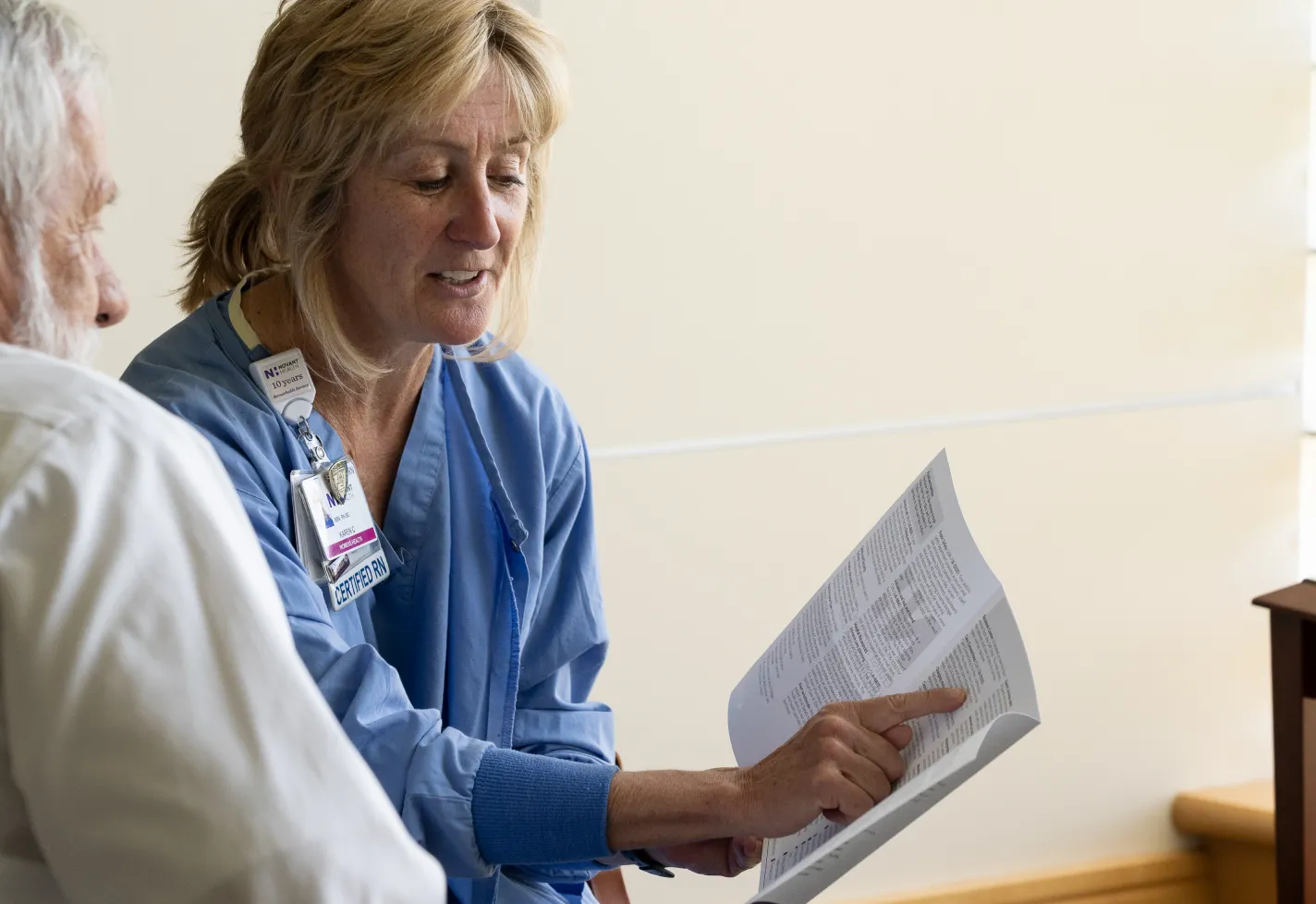Patients
Making you feel better is our top priority.
We want your hospital visit to be as easy and comfortable as possible. When you check in to Novant Health Forsyth Medical Center, rest assured our highly skilled care teams put your health and well-being first.
We treat you like a person, not a patient. Whether you need help getting around the center, have questions about your treatment, need someone to interpret for you, or want a cup of water, our team members are always available to help.
If you have any questions during your visit or stay, call the hospital.
Get Ready for Your Hospital Visit

Patient Handbook
Learn more about care decision planning, your rights and responsibilities, safety, hospital stay details and more.
Patient Resources
Hospital stay
If you are staying at Forsyth Medical Center overnight, the following information will help you know what to expect.
What to bring
- Mobile phone and/or tablet
- ID card
- Insurance card
- Sleepwear
- Toiletries, eyewear, dentures and the containers for these items
- List of your current medications (leave medications at home)
We recommend that you leave all valuables at home, as we cannot be responsible for lost or stolen items. If you do bring valuables, please ask guest services to store them in the hospital's safe.
Label your things with your name.
Medications
While you should bring a list of your current medications, please do not bring your medications with you to the hospital. You can only be given medications from home if hospital medical staff prescribe it.
MyChart Bedside
MyChart Bedside is an app you can use during your hospital visit to communicate with your care team, review your vital signs and lab results, view your scheduled services, access educational resources, and request comfort items.
You can only access MyChart bedside after you’ve been admitted to the hospital. You can either:
- Access MyChart Bedside through your existing MyChart app (if already downloaded)
- Download MyChart Bedside download to your phone or tablet
- Request a hospital-issued tablet to access MyChart Bedside
Your room
will include a:
- TV
- Private bathroom
- Nurse call button for when you need help
- Pull-out recliner or sofa for guests who need to stay with you overnight
Meals
A member of the food and nutrition team will visit your room to take your order for each meal. A chef’s choice may be delivered if you arrive after orders have been placed.
Leaving your unit
Please stay in your room until your doctor has made rounds and treatments are complete. Ask the nurses' station if your doctor has given approval for you to leave the unit and let staff know how to reach you.
End of your stay (discharge)
When your doctor determines you are ready to go home, they will:
- Give written discharge authorization
- Review your follow-up care instructions with you (you will get a copy.)
Your follow-up instructions will cover things like appointments, medications and incision care.

Team member recognition platform
Want to thank a provider or one of our team members for a wonderful experience? Want to make sure that remarkable team member gets the recognition they deserve? With the Novant Health team member recognition platform, you can quickly and easily share your gratitude and tell our team just why you appreciate them. The recognition you submit will be seen and celebrated by the team member's team and leadership.